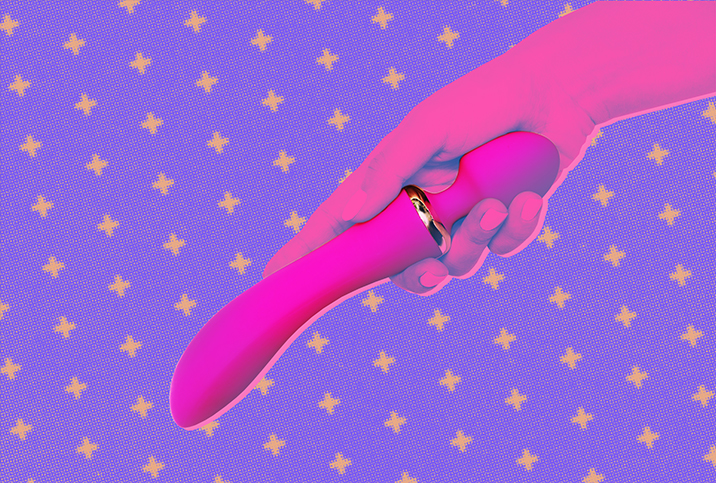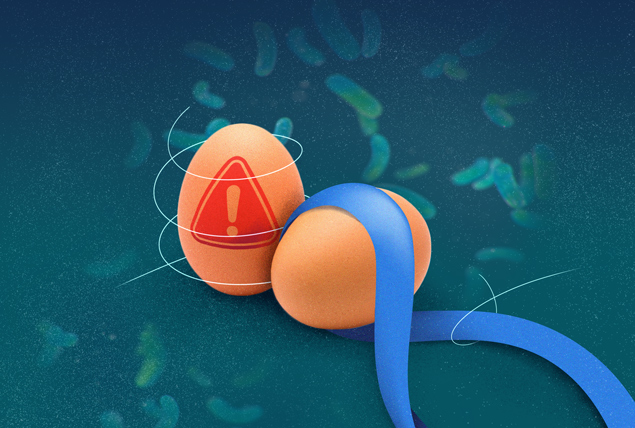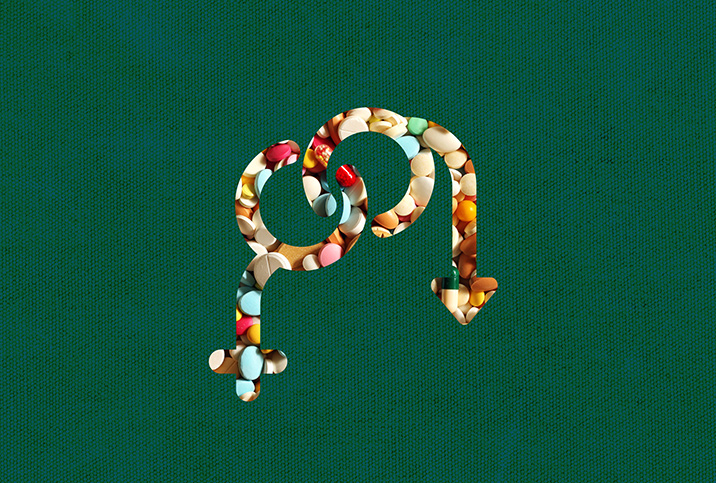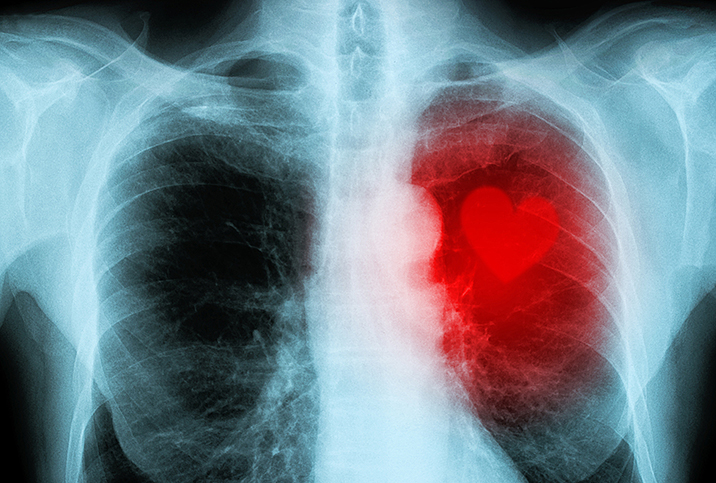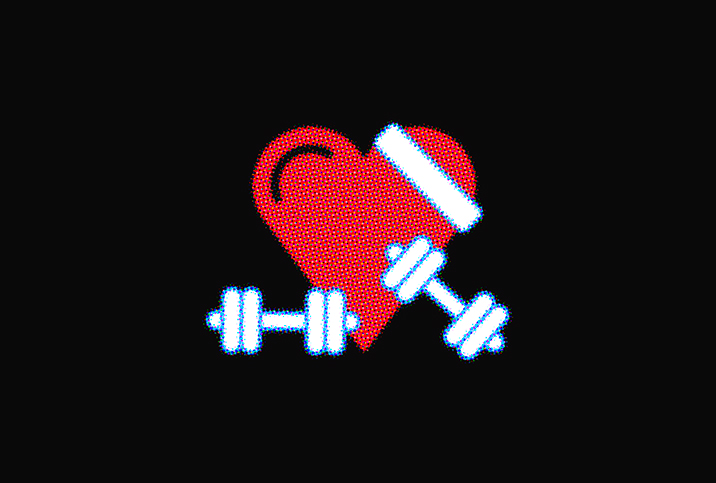The Facts About Heart Health and ED
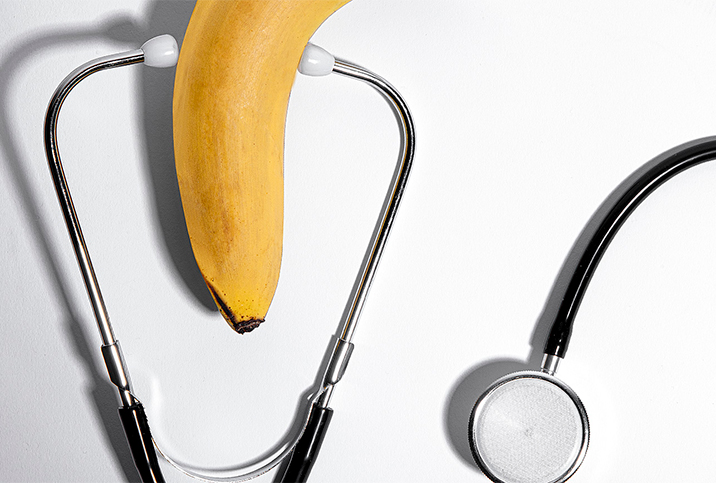
About 10 percent of adult men have ongoing issues with erectile dysfunction (ED). While you may be most concerned with how ED is affecting your sex life, you should be equally concerned, if not more so, about your heart health.
The factors in successfully getting and maintaining an erection include proper penile nerve functioning, adequate penile blood flow and accurate brain-to-penis stimulation. If there is a problem with any of these factors, you could experience ED.
Since your heart is responsible for circulation and blood flow, ED may be a sign of beginning or advanced heart or vascular disease.
An overview of heart health
Your heart is your body's workhorse, even though it is only about the size of two adult fists. Your heart sits behind your sternum and within your rib cage. It is vertically divided into two sides, left and right, and horizontally divided into top and bottom, the atrium and ventricle, for a total of four chambers: right/left atrium and right/left ventricle.
Circulation of blood through the body begins with arteries, which bring blood into the right atrium. Blood then flows into the right ventricle, where it is passed to the lungs for oxygen. Once your blood is oxygenated, it goes back to the left atrium of your heart to be sent to the left ventricle.
The left ventricle, the strongest part of your heart, then pumps out oxygenated blood through the aorta and into multiple branching arteries to reach all the vital organs in your body. About 6 quarts of blood circulate through your body about three times every minute. Each day, your blood travels the equivalent of 12,000 miles, or roughly four times the distance from the East Coast to the West Coast in the United States.
When your heart is healthy, circulation provides the oxygen-rich blood your vital organs and tissues need to function properly. However, if your heart develops functional or structural problems, your whole body is negatively affected.
Some of the common signs, symptoms and conditions related to heart disease include:
- Heart attack
- Hypertension (high blood pressure)
- Angina (chest pain caused by reduced blood flow to the heart)
- Rheumatic heart disease
- Stroke
- Coronary artery disease
Like every other organ in your body, your heart itself needs blood to function. The arteries that supply oxygenated blood to nourish your heart are the coronary arteries. Coronary artery disease occurs when your heart's blood vessels become blocked or narrowed by the accumulation of cholesterol, calcium and plaque on the cardiac artery walls. This condition affects the flow of blood that supplies and nourishes your heart tissue and may lead to a heart attack, angina and, eventually, congestive heart failure.
When blood flow into your heart slows down, blood flow out of your heart slows, too. This means the rest of your body, including your penis, does not get the amount of oxygenated blood it needs to function properly.
If blood flow to your coronary arteries is completely blocked, then you will have a heart attack. Some heart attacks are mild, affecting only a small portion of the heart. Even a small amount of damage can lead to serious complications such as arrhythmia (irregular heartbeat) and put you at higher risk for a second heart attack. Many heart attacks are severe, damaging a large portion of the heart and resulting in significant cardiac impairment.
Once your heart muscle has been damaged, it is no longer capable of doing its job at 100 percent capacity, which means you can experience other health issues as a result.
Heart disease kills more Americans each year than any other health condition. Although a majority (approximately 85 percent) of people who die from heart disease are older than 65, heart attacks in people younger than 40 are on the rise.
This trend is primarily attributed to lifestyle choices, including eating an unhealthy diet, being sedentary and putting on too much weight. Therefore, making lifestyle changes is something you can do today to maintain a healthy heart, good circulation and a great sex life for years to come.
The heart and ED connection
Sometimes heart disease can be silent, and many people may not even be aware there has been damage to their heart until after they experience a major heart attack resulting from damage over time. However, if you are experiencing erectile dysfunction, there's a possibility that you could have underlying heart or vascular disease.
Although symptoms of erectile dysfunction may not be good news for certain aspects of your life, it could be a treatable boon in helping you detect underlying heart disease early, before it leads to more severe problems. ED may be a lifesaver, in a way. The early stages of heart disease can often be successfully treated or reversed, so the sooner you know you are having heart problems, the better the outlook is for your long-term health and survival.
Erectile dysfunction occurs when you do not get an adequate blood supply to your penis to get and maintain an erection. Many men experience ED from time to time, but this is often related to something situational, such as stress, worry, anger or sadness.
However, if you are experiencing ED more than half the time when you are trying to have sex, then something else is going on. Your ED may be the result of an underlying physical health issue or a combination of physical and psychological issues.
Your next step should be to make an appointment with your primary care physician as soon as possible to find out what is causing your erectile dysfunction.
Heart conditions and ED treatments
It may be embarrassing to talk about it, but it's important to be honest about your erectile dysfunction with your doctor. Tell them how often it is occurring and mention any problems it is causing for you and your partner. The more information you provide at the outset, the easier it may be for your doctor to target the underlying cause.
Your doctor will likely order several tests to help determine what is causing your ED. Some of the tests will evaluate the functioning of your heart and blood vessels.
Vascular diseases are a common physical cause of ED. High blood pressure, high cholesterol and atherosclerosis—thickening and hardening of blood vessels, which restricts blood flow to the rest of your body—are responsible for 70 percent of ED cases that have a physical cause. For men older than 60, atherosclerosis is the culprit in half or more of ED cases.
Atherosclerosis is the buildup of plaque in your arteries. When plaque builds up over time, your arteries get harder and narrower, reducing the amount of blood that can flow through them. Atherosclerosis can be managed through lifestyle changes (diet, exercise, weight loss), medication, medical procedures (stents) or surgery (bypass).
High blood pressure (hypertension) occurs when the force of blood against the artery walls is consistently too high. High blood pressure damages your arteries by reducing their elasticity. This can reduce oxygenated blood flow to your heart and cause heart disease.
If you have high blood pressure, your primary care physician will prescribe medication to lower it. They will monitor you closely to make adjustments in the types and dosages of medications so your blood pressure does not become too low.
Natural treatments
You can also take steps to lower your blood pressure. Diet can help. If you eat a lot of high-fat, high-salt and high-sugar foods, then you can go a long way toward lowering your blood pressure by eliminating them from your diet. Incorporate whole grains, fresh fruits, healthy fats and lean sources of protein into your meals. Replace sugary drinks with plain water or sparkling water.
Stay well hydrated. Hydration plays a critical role in blood pressure. If you are chronically dehydrated, your body's cells lack the water they need to function properly. Additionally, dehydration can mask itself as hunger, and when you begin to feel dehydrated, you may want to eat something. Drink water first and see if it satisfies what you thought were hunger pangs.
If you use tobacco, you should quit. Nicotine stimulates your central nervous system and releases adrenaline, a hormone also known as epinephrine. When adrenaline surges through your body, it raises your awareness and energy levels but also elevates your blood pressure and increases your heart rate.
Another way you can help lower your blood pressure naturally is by becoming more active. Sitting a lot can elevate your blood pressure. Find ways to be more active throughout the day, even if you have a job that requires you to sit a lot. Take a five-minute break every hour to get up and move around. When you are not working at your job, do some indoor or outdoor activities that require you to exert some physical effort.
Although cholesterol is essential for healthy cell-building, too much of certain types of cholesterol can cause fatty deposits to build up in your arteries, which can obstruct blood flow to the rest of your body. High cholesterol often shows no symptoms and is only detected through a blood test, another reason to get your yearly physical. It is easy to treat and can often be lowered with dietary changes (reducing the intake of high-fat foods) and increased activity levels, although medication may be needed in some cases.
If your ED is caused by heart issues, improving your heart health will also improve your erectile function. If you do need ED treatment as your heart health is improving, a number of treatment options are available. Wearable products, such as vacuum pumps and constriction devices like Eddie by Giddy®, are designed to optimize blood flow in the penis for achieving and maintaining erections. Many of these wearables don't require medications or trips to a doctor.
Heart disease and ED prevention
The best step you can take to ward off heart disease and ED is choosing the right lifestyle habits early in life and sticking with them.
Skip the fast food and take the time to eat healthy foods instead. Fill your meals with lean proteins (chicken, eggs and fish), abundant amounts of fresh vegetables, whole grains, healthy fats (olive oil, avocado, omega-3 fatty acids) and nuts.
Make time each day to be physically active. If you have not been physically active for a while, start slowly and work up to at least 30 minutes a day. Aerobic exercise (cardio) is optimal for strengthening your cardiovascular system because it improves blood flow for better circulation.
Stress can increase your risk of developing heart disease and ED. Stress is a normal part of life. If stress becomes constant, however, it needs to be managed so it does not threaten your long-term health.
You can manage stress by using relaxation techniques (meditation, deep breathing), cognitive behavioral therapy (relearning how to respond positively to stressors) and activities that destress you (listening to music, doing something creative, working on puzzles). If you're unable to manage your stress, look into seeing a therapist. A mental health professional can help you tackle the sources of stress in your life and give you techniques to manage them.
Heart disease and ED outlook
With the right medical care and healthy lifestyle changes, the outlook for your heart disease and erectile dysfunction is good. It is important, though, that you continue to seek medical care and that your positive lifestyle changes are permanent.
Once heart disease has developed, it tends to get progressively worse as you age. However, if your heart disease was detected in its earlier stages, you can help ensure that it does not worsen, and even if you have a more advanced stage of heart disease, you can slow its progress with proper medical care and healthy lifestyle changes. Be sure to regularly communicate with your doctor, who can monitor your progress and keep you on track.
Heart disease and ED resources
One of the best resources for education about heart disease is the American Heart Association. You can find information about heart conditions, treatments, lifestyle modifications and much more.
If you have been diagnosed with heart disease and/or ED, you have probably experienced troubling psychological and emotional changes, such as depression, anxiety or fear. One resource that can help you handle your feelings is your primary care physician. They have access to programs such as cardiac behavioral therapy, which takes a holistic approach to manage heart disease. Cardiac behavioral therapy teams usually include psychiatrists, psychologists, dietitians, cardiac surgeons and cardiologists.
Remember, too, that you don't have to go through this alone. Heart disease can be scary and overwhelming, so lean on your loved ones and communicate how you're feeling. Find support groups of other men in similar situations who know exactly what you're going through. A support system can help you manage your fear and keep you level-headed for the treatment to come.
Your psychological and emotional health are prime factors in heart health and ED, so do what you can to treat those elements of your well-being just like you would any other medical condition.






